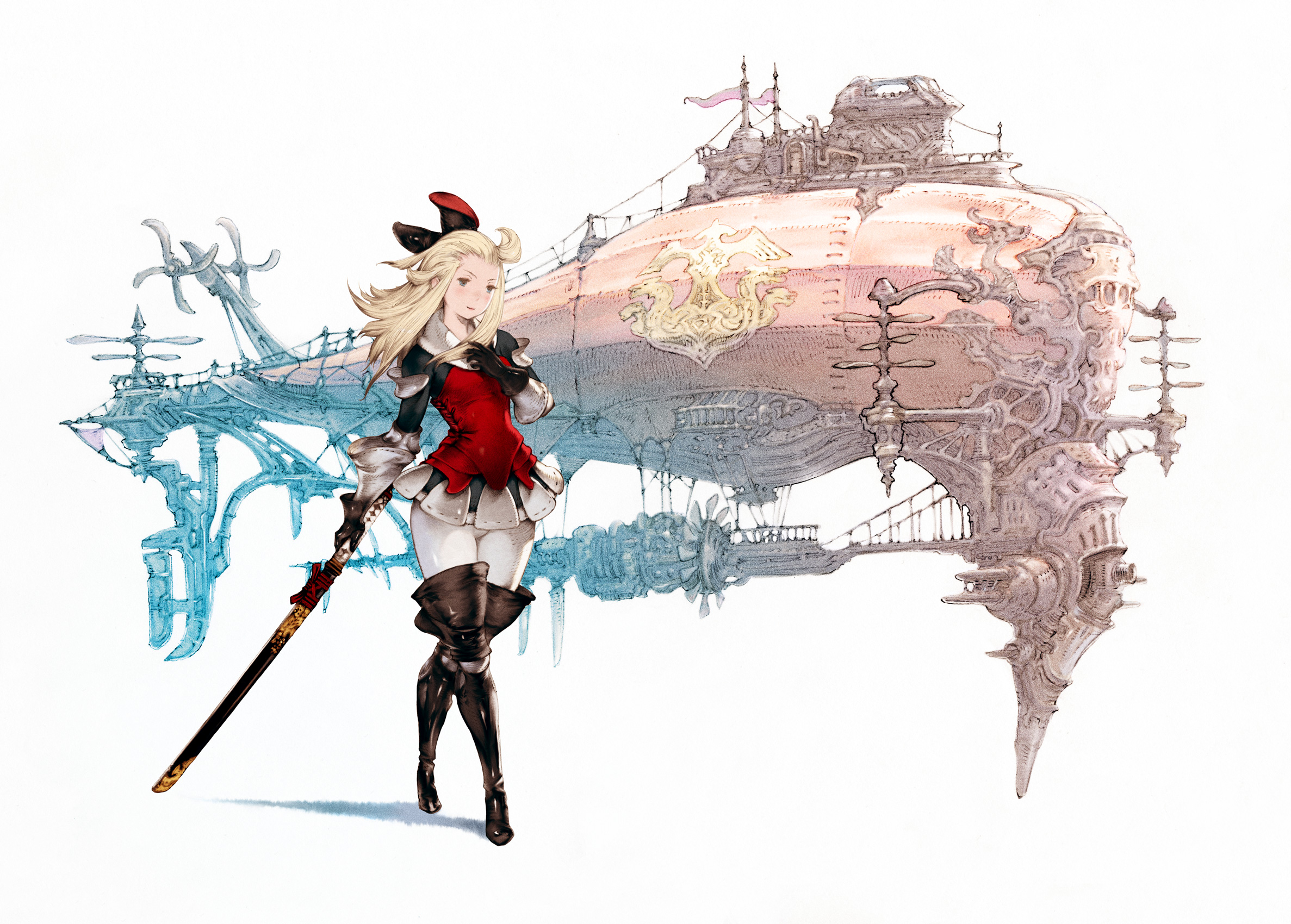GamesRadar+ Verdict
Pros
- +
Classic RPG action with a tactical twist
- +
A vast story full of colourful characters
- +
Gloriously artistic presentation
Cons
- -
Overly grindy at times
- -
Certain characters are grating
Why you can trust GamesRadar+
Bravely Default isn't exactly a name that conjures up images of kingdoms on the edge of collapse, entire communities disappearing, and religious extremism tearing families apart. Thankfully, this is one of very few grumbles about a title that gently draws you in with a beckoning JRPG finger before asking you to gamble your sanity with an elegant twist on turn-based combat.
Yeah, that’s right; turn-based combat. If you’re not here for random encounters and chunky, strategic fisticuffs then you should turn back now--this adventure is not for you. Bravely Default is proudly hewn from the same rough stone as RPG classics like Chrono Trigger, Dragon Quest and Final Fantasy (well, before it went all Prada and skin shaders and catgirl DLC). It’s more than just shuffling traditionalism, though: there’s a rich vein of modernity that pleasingly refines an otherwise familiar experience.
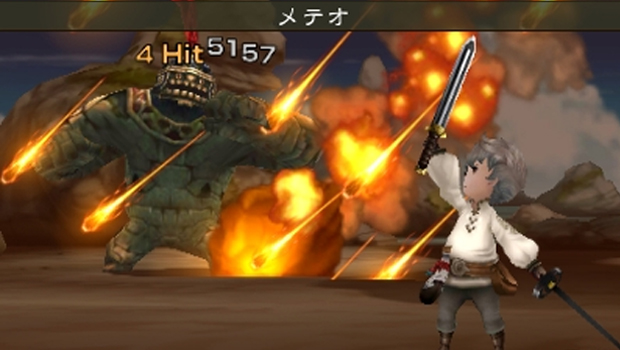
Most notable is the combat system that gives us the slightly-guff name. Fights initially offer you just the blood and thunder RPG options: attacking, healing, running away. Eventually, though, you unlock the Brave and Default abilities, which are all about the risk vs reward gamble of going all out attack, or coiling up for a defensive counter strike. Choosing the Brave option allows you to stack turns, taking them all at once for a swift and brutal finish. Conversely, choosing Default will bolster your defence, skipping your attack but allowing you to make additional ones later on. Splurging your moves early will leave you open to a crushing riposte, but in practice these options offer far more tactical pizazz: familiarity with enemy patterns lets you brace during the big attacks or unleash hell during an opening. It’s simple and brilliant--immediately easy to understand, but still open to pace-altering tinkering and artful exploitation.
And, as Bravely Default progresses and fights get sterner, you’ll find yourself staggering attacks to make increasingly calculated use of your party members. Better yet, it’s so slickly done that this rarely feels laborious; random encounters might occasionally draw a weary sigh--and if necessary, they can be turned off completely--but multiplying your attacks lets you slap down low-level enemies with a satisfying wallop.
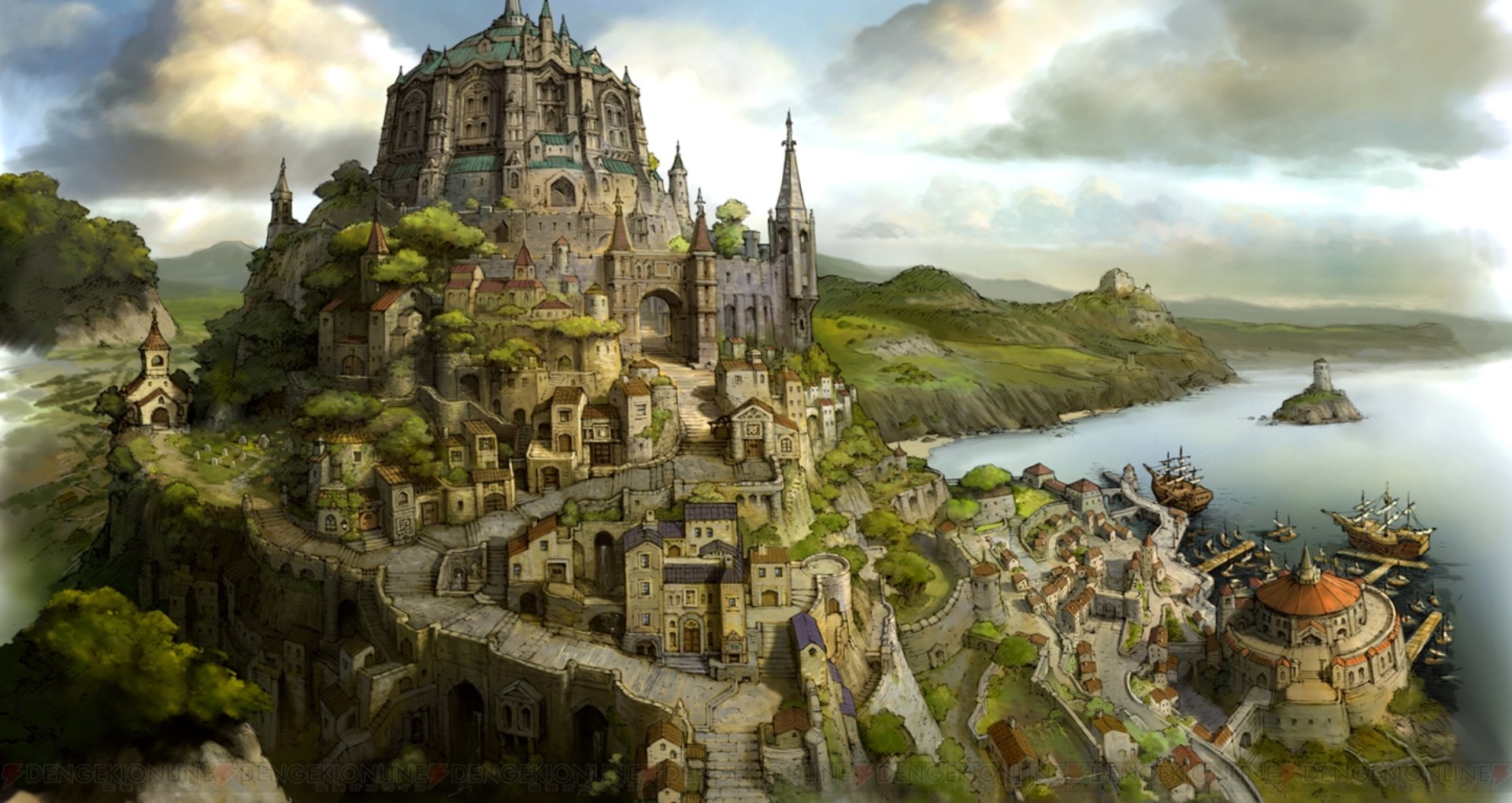
Bravely Default also drip-feeds you a massive selection of 24 character classes--unglamorously called jobs--which are unlocked by defeating the deliciously evil bosses. Jobs range from standard fantasy fare such as knights and thieves to more surprising stuff like the merchant--a class that adds further tactical riches by letting you squander in-game currency in exchange for offensive oomph, all while wearing a snazzy top hat. There’s a rewarding feeling of having earned each class, and the option to mix and match skills allows for endless tinkering and pleasingly unpredictable results.
The superficial nature of some jobs meant that I still found myself falling back into more comfortable RPG archetypes--particularly when staring down the biggest bosses--but if you ever wondered what happens when you mix pirate and ninja, Bravely Default has you covered. This emphasis on variety also extends to the characters. Their may only be four playable heroes, but they’re supported by an eccentric cast that includes bumbling kings, avaricious businessmen and lecherous, thigh-rubbing sages. Better yet, compared to monosyllabic alternatives like Fire Emblem: Awakening, the amusing, fully-voiced cut scenes add meat to the game’s already endearing bones.
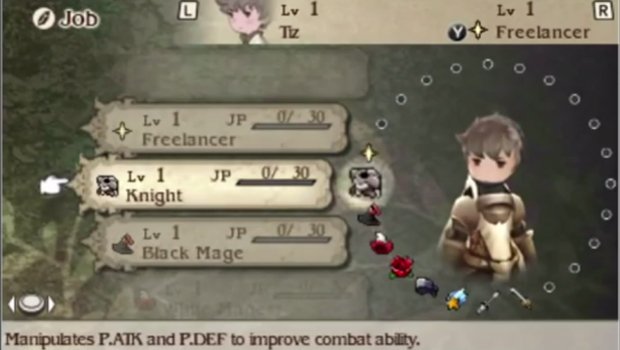
Even bosses you despatch with murderous efficiency are well established enough to be convincing and memorable. It’s a typically overblown story of staggering vastness--don’t expect quest items to be retrieved without at least some grind--but the appeal of Bravely Default often comes from the quieter moments. A particularly unflinching opening sees hero Tiz lose everything when his village is consumed, but it’s the final seconds with his brother that hit you with the feels. The roguish Ringabel--no, not the guy from The Wire--fulfills three JRPG tropes in one as a womanising amnesiac who provides comedic relief, but he’s a necessary foil to the doom-tinged backstory. The only misstep comes with heroine Agnes: the vestel keeper of the game’s magical crystals is rather too much of a ‘whine aficionado’.
The weight that comes from these characters is well supported by some unusually lavish presentation. The world looks meticulously hand-drawn, bristling with tiny but imaginative details. You’re drawn in by cracked mortar and cats reclining on walls, before the camera pulls back to reveal gently twinkling seas, lazy clouds, and cities filled with tumbling, enticing buildings--it’s a world that comes alive through scale and detail. If it’s not the most technically impressive 3DS game, it’s certainly one of the most artistic, and the swirling, varied score stays inside your head for hours after you’ve stopped playing.
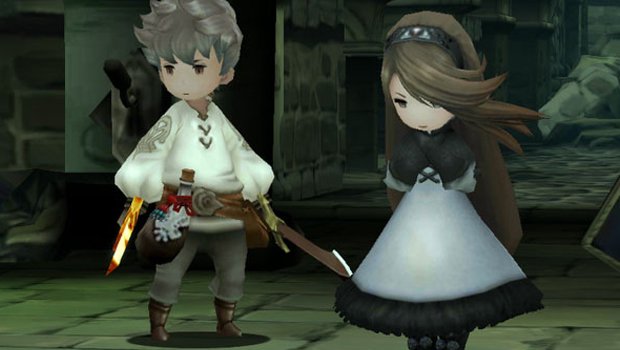
Add to this some cunning use of StreetPass that lets you turn friends into labourers in order to rebuild Tiz’s village, and this feels like the very definition of a modern JRPG: pushing to try new things but openly informed by the venerable titles that came before it. Unlike those, Bravely Default perhaps isn’t a game that’ll we’ll be talking about in 15 years, but there’s enough invention, charm and depth here to prove that--on the 3DS at least--the genre doesn’t need the Phoenix Down just yet.
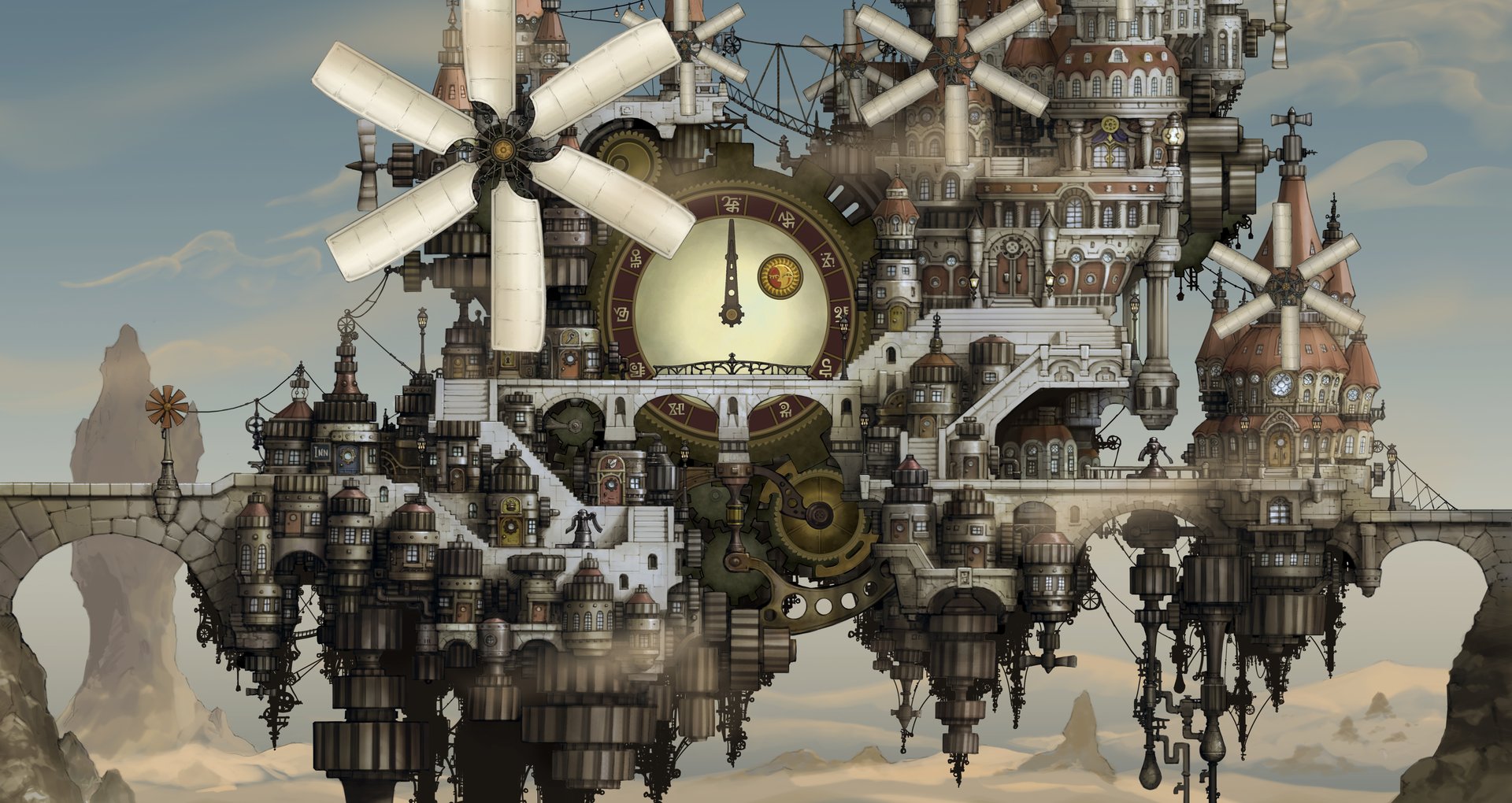
Bravely Default is ambitious without being unconventional: an effective, engaging addition to a genre often hamstrung by tradition.
More info
| Genre | Role Playing |
| Description | In Bravely Default, players become a Warrior of Light and journey to the land of Luxemdarc in this classic tale of personal growth and adventure. |
| Platform | "3DS" |
| US censor rating | "Teen" |
| UK censor rating | "" |
| Release date | 1 January 1970 (US), 1 January 1970 (UK) |
